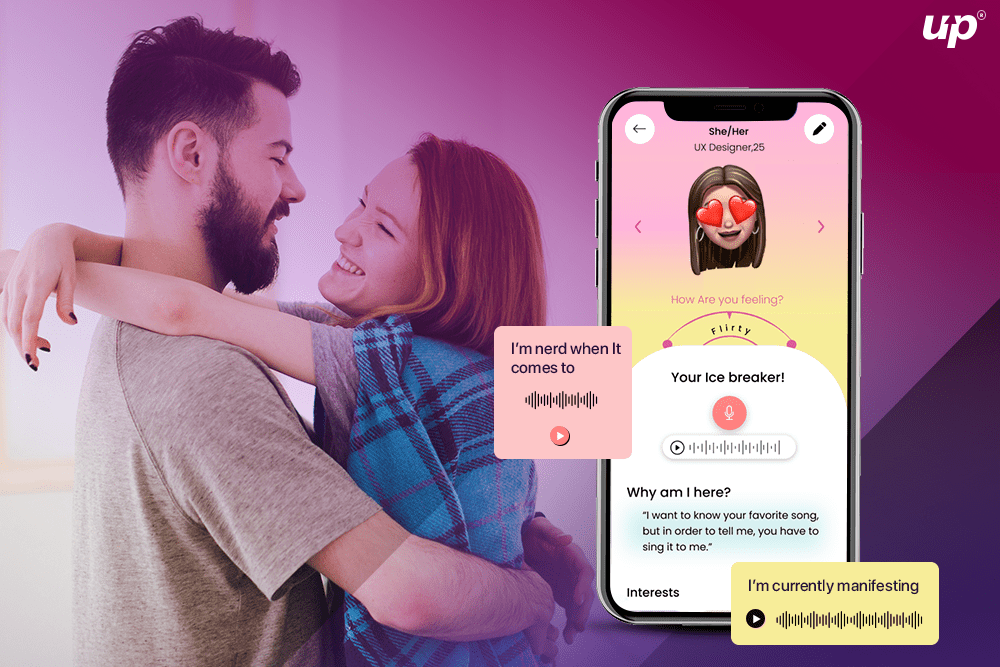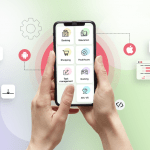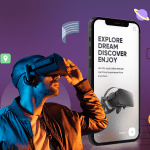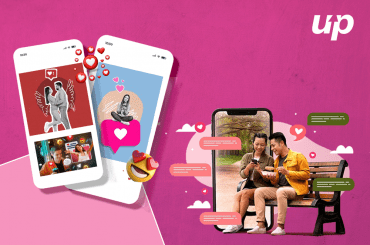The oversaturated online dating app market has seen a rapid pandemic of swipe exhaustion. These days, dating apps are just standard platforms with no special value to offer those looking for meaningful encounters. However, just as disillusioned singles start to turn away from these classics, audio-focused upstarts have emerged to revitalise online romance.
Early users laud these voice-based Potential match tools for changing impressions through the subtleties of tone, cadence, laughter, and online chemistry beyond 2D profiles. Such audio cues cannot be transmitted as intimately via video calling. Vocal matching allows personality, humour, and storytelling to sow deeper attraction seeds instead of passing judgment based solely on outward looks.
Thus, if audio-powered disruption keeps rising over the next three to five years, the fundamental tenets of online dating might undergo an irreversible transformation.
However, what crucial paths need to clear first for voice matchmaking to lead the dating app development sector into its next major phase?
Digital Courtship Takes on a New Dimension with Audio Dating
Online dating app development by the best dating app developers where users can hear possible Potential match voices as they joke around about their favourite hobbies or giggle over embarrassing childhood memories, rather than just reading text-based profiles and swiping through still images. When personality takes the front stage and interactions flow more naturally without being preoccupied with appearances, profile photographs recede behind a curtain.

As dating apps expand, this is the voice-first dating environment, characterised by platforms that let users connect primarily on the sharing of quick audio samples known as “profiles.”
However, the distinct advantage lies in listening and interacting rather than observing and flicking. Early data already suggests that pioneering singles had strong feelings.
Voice Analysis Technology Improves Match Accuracy
The quick development of voice analysis technology for precise matching is one significant factor that could hasten the widespread use of audio dating app development solutions. For partner recommendations, popular swipe systems currently in use mainly rely on simple filters and algorithms. Based on small facts such as demographics, questionnaire responses, socioeconomic levels, and surface-level shared hobbies, these matches are heuristically proposed.
On the other hand, cloud-based AI that decodes the layered vocal, linguistic, emotional, and conversational signals inside succinct voice clip profiles makes it possible to connect singles with the help of audio dating app development solutions. Strong machine learning algorithms are utilised by the best dating app developers to analyse over 50 different aspects in a 60-to-90-second speech introduction.
For instance, due to their similar temperaments and emotional tendencies, two introverts who are prone to social anxiety may make a good match. In the meantime, someone who values family and empathy could find resonance with someone whose voice exudes transparency and uses a lot of community-focused language.
Voice-first dating app development solutions have significant potential to decrease mismatched Potential match as AI accuracy improves every month to surpass basic demographic filters.
Under the current models, online dating app development may also more effectively screen out applicants who are only swiping excessively in search of affirmation from those who are aligned on basic sensibilities.
More In-Depth Compatible Signals: The following are some domains where voice analysis AI seeks to offer more comprehensive compatibility insights:
Emotional Intelligence: Perceiving traits in a voice that indicates empathy, compassion, patience, and understanding can reveal matches that are extremely sensitive to the emotions and varied experiences of others. Relationships are strengthened as a result.
Conflict Resolution Approach: By examining partners’ levels of dogmatism, argumentative tone, and response to controversial subjects, it is possible to identify partners who are more likely to communicate in a mature, conciliatory manner as opposed to a confrontational manner that is inappropriate for a healthy relationship.
Stress Response: There are audible distinctions between the more reactionary, chaotic reactions to tension and the more thoughtful, positive ones. Finding voice characteristics associated with stress resilience enables more compatible pairing.
Expressiveness Styles: Although overt extraversion has disadvantages, linguistic nuances in story and description can nonetheless distinguish between similarly passionate and colourfully expressive personalities and more strictly stoic and non-emotive types when the situation warrants it.
Interest Compatibility: Voice AI may reveal comparable degrees of intellectual interest, amazement, and wonder that bind couples via shared exploration, going beyond simply polling activity preferences.
Advances in Matchmaking Algorithms
Audio dating services can enhance their compatibility predictions and analyse predictive patterns by refining their basic matchmaking engines through the analysis of subtle data points extracted by AI from small voice samples.
Multivariate Compatibility Scoring: To compute Potential match, platforms now use up to eight distinct algorithmic models. These models include congruence of future goals, values alignment, personality/temperament pairing, sociocultural appropriateness, and more. This lessens dependence on a particular analytical dimension.
Cluster-Based Analysis: Assigning users to typical vocal or psychological clusters facilitates matching within groups resembling tribes that are more likely to naturally share sensibilities.
Feedback Loop Optimisation: Based on specified match attributes, user feedback regarding real-time outcomes improves the relevance of future recommendations.
Demographic Layering: To take into consideration practical considerations like location, age range, and intent, algorithms continue to layer secondary demographic filters after main compatibility is confirmed through acoustic measurements.
New compatibility insights, such as word choice suggesting attachment type or voice patterns indicating political temperament, are also discovered through ongoing algorithm developments that mine data. When compared to questionnaires alone, voice generates an exponentially bigger pool of data points, which greatly increases the relevancy of matches.
Voice-Based Development of Relationships
One last benefit of voice-activated online dating app development by the best dating app developers that accelerates the comfort of the general public is that these apps provide capabilities for relationship development beyond simple recommendation-making, even after first matching.
Apart from enhancing self-matching, audio is in a unique position to challenge conventional online dating practices by establishing whole new community frameworks. Combining all intents and demographics into one interface contributed to Tinder’s and other swiping hubs’ dominance. Global populations, however, do not have universal preferences for online dating apps based on factors such as gender, culture, morals, and other identifiers.
Conclusion:
Personalised encounters that no single interface modality can fully provide are fostered when singles can connect fluidly across a variety of formats that are tailored to their specific comfort level and situational needs.
Growth in voice-first online dating apps hinges on developing hybrid infrastructures that recognise the inherent complexity of human connections and handle early problems. The potential of next-generation platforms is unlocked by the best dating app developers seamlessly integrating voice matching, video integration, conversational messaging, and speciality community growth.












